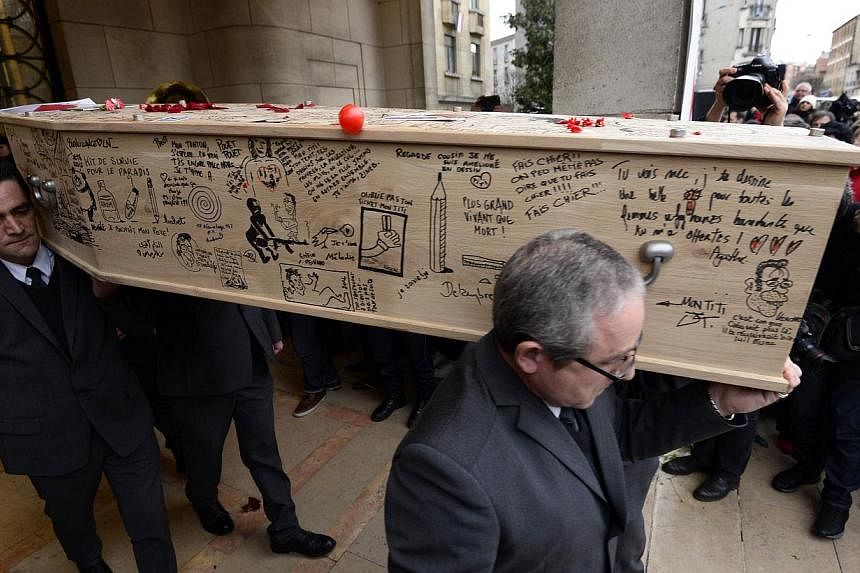The world rightly condemned the terrorist attack on Charlie Hebdo. The tragedy has spawned hundreds of commentaries around the world. Is there really a need for yet another one? Most have predictably cast the issue in terms of freedom of speech, and this is certainly an important aspect that should not be ignored. And of course terrorism is a global problem that the world should unite to fight. But I have yet to come across one that has drawn attention to the eerie extent to which the murderers and their victims shared a similar mode of thought.
Both held their values to be so absolute that they justified anything. The fact that the terrorists had a completely mistaken interpretation of Islam is of course correct, but also beside the point. The point is that they believed in it; believed in it as fervently as the cartoonists believed in their right to freedom of expression. But is freedom of expression necessarily the prime value for everyone? Thousands may agree; thousands of others would disagree and disagree without murderous intent.
I am not arguing that there is a moral equivalency between the terrorists and the cartoonists. Clearly there is none. Nothing justifies murder. And if a cartoonist has ever murdered anyone, it is probably only for the mundane and sordid reasons that most murders are committed. But is it right to constantly lampoon a religion? I do not often agree with Dr Mahathir Mohamad, but he got it absolutely right when he said that killing is wrong and so is insulting someone else's religion.
When the news broke, I conducted a very unscientific and somewhat mischievous experiment. An American friend posted an article on the attack on Charlie Hebdo on his Facebook page. I commented that the modes of thought of both sides was similar. The response was as I expected. The westerners were outraged. As this is a family newspaper I cannot quote their comments and will only say that none were complimentary, some rather creative in their interpretation of my ancestry, and I learnt a few new words. There is no one as rabid and intolerant as a liberal in full bray in defence of liberalism, an irony that liberals seldom appreciate.
I was not offended; it takes a lot to offend me. And had I needed any comfort I could have taken some from the fact that when the Pope himself was so audacious to suggest gently that there must be some limits to freedom of speech, he too was not spared, with the Huffington Post huffing that this came close to blaming the victim. But, wait a minute; didn't the magazine have some responsibility? Just a smidgen perhaps? Just as much as someone smoking in a petrol dump? No?
I chuckled to myself and let the rants continue for a while. I then pointed out that even from the point of view of freedom of expression; a double standard was at play. France, like many other European countries, has laws against the denial of the holocaust. When the law was challenged on the grounds that it infringed freedom of expression, the United Nations Human Rights Committee held that it was justifiable as necessary to counter anti-Semitism. Even the United States prohibits hate speech.
That ensured radio silence: nothing heard, out! It was almost too easy, like shooting fish in a barrel. I was highly amused.
But the larger point, which the Americans and Europeans who responded to me didn't or refused to understand, is a serious one. This is not just about tolerance or respecting other religions, but something far more fundamental. Any action taken on the defence of a system of values embraced as absolute seldom ends well.
Isaiah Berlin, a political philosopher and intellectual historian who deserves to be more widely read today in the West, probably made the argument best. To summarise the central point that infuses his body of work: there is not only one Good but multiple Goods and these Goods often contradict each other and so cannot be simultaneously realised.
Now that's something for Singaporeans to think about as they complain about columbariums, foreign workers or whatever.
The writer, a former Permanent Secretary for Foreign Affairs, is now Ambassador-at-Large.

